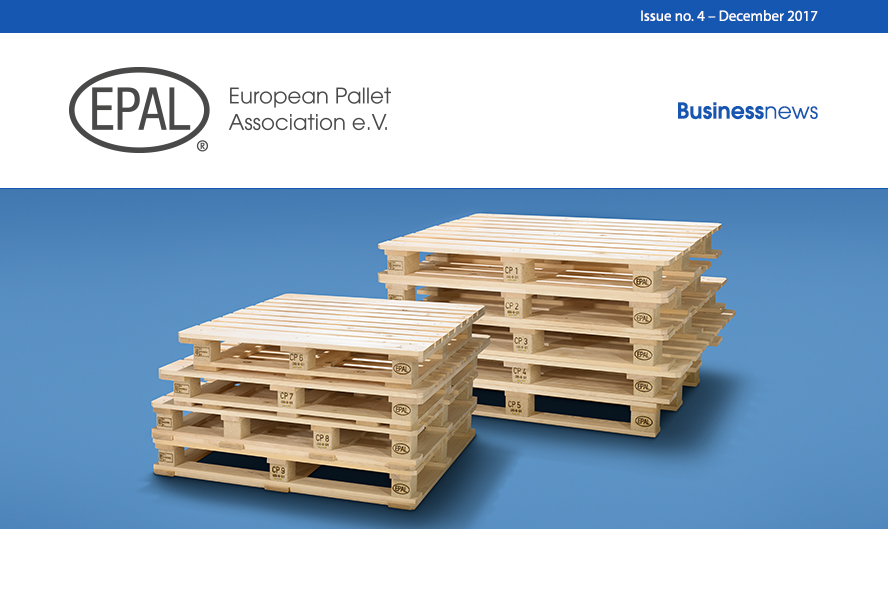 |
News about EPAL CP palletsSince the European Pallet Association launched their expanded offer of licences for producing EPAL CP pallets at the international press conference on 16/11/2017, already some existing EPAL licensees have responded and applied for the new CP licences from EPAL – without any additional costs. EPAL’s focus is the same for CP pallets: adhering to the Technical Regulations, independent quality assurance and prosecuting and enforcing measures against trademark infringements. Three weeks after EPAL’s press conference, PlasticsEurope Services (a subsidiary organisation of the trade association PlasticsEurope, mainly active in the plastics sector and based in Brussels) wrote to their registered CP pallet producers on 08/12/2017. In this letter, PlasticsEurope took up the topics that EPAL had raised at their press conference and which were the reasons why parts of the chemicals industry had demanded CP pallets in EPAL quality: Low quality, counterfeit CP pallets, production parameters that aren’t complied with, and safety risks for users. What is remarkable about the reaction from PlasticsEurope Services, is the timing of the letter. CP pallets have been produced and brought onto the market under licence from PlasticsEurope Services since the 1990s and since then, trademark infringements, low quality and safety risks don’t seem to have been an issue, despite these being called for by the chemicals industry. Licences to produce CP pallets were awarded and invoiced by PlasticsEurope, but inspections in the form of site inspections didn’t take place nor were there any functional specifications for licensees. Obviously prodded into action by EPAL’s activities, PlasticsEurope Services are now trying to launch and win licensees for a new CP pallet brand under the name CERTIPAL ®. A requirement for using the brand is a registration fee of EUR 1,250 – even for existing licensees. PlasticsEurope Services’ inspection company is as yet not known. So far the only thing that is certain, is that quality inspections will take place at most 3 to 4 times a year. Here you can read the letter from PlasticsEurope Services. Whether this will be enough to guarantee an extensive quality assurance and to earn the trust of users in the especially safety-focused chemicals industry, remains to be seen. Existing EPAL licensees pay no additional fees for the EPAL CP licences. Quality control takes place at least once a month and EPAL CP pallets can also be immediately identified by the control staple as a certificate of authenticity. All recognised and proven inspection procedures as well as market observation will be carried out as usual by the renowned inspection company, Bureau Veritas. The trademark “EPAL in oval”, established for over 25 years, stands for independent quality assurance, for trust in the brand and for SAFETY FIRST for EPAL CP pallets too. For further questions, please contact EPAL’s General Secretariat who would be happy to help info@epal-pallets.org EPAL’s National Committees are to be found here Overview of EPAL CP pallets |
Comparison of CP pallet licence conditions PlasticsEurope Services / EPAL |
PlasticsEurope Services |
EPAL |
Trademark designation |
CERTIPAL ® | EPAL in oval |
| Newly registered trademark | Established over 25 years ago |
Registration fee for existing licensees |
EUR 1,250 | EUR 0.00 |
Inspection organisation |
Unknown | Bureau Veritas, inspection company operating worldwide |
Inspection fees |
1,470 €/Year | On request |
Inspection frequency |
3-4 times per year | >1 monthly |
Certificate of authenticity |
None | Control staple |
ISPM 15 heat-treatment |
New, as standard | EPAL standard since 2010 |
Trademark rights prosecution |
Unknown | By independent lawyers in all countries |
Sanctions proceedings |
Unknown | For low quality |
European Pallet Association e.V.
|